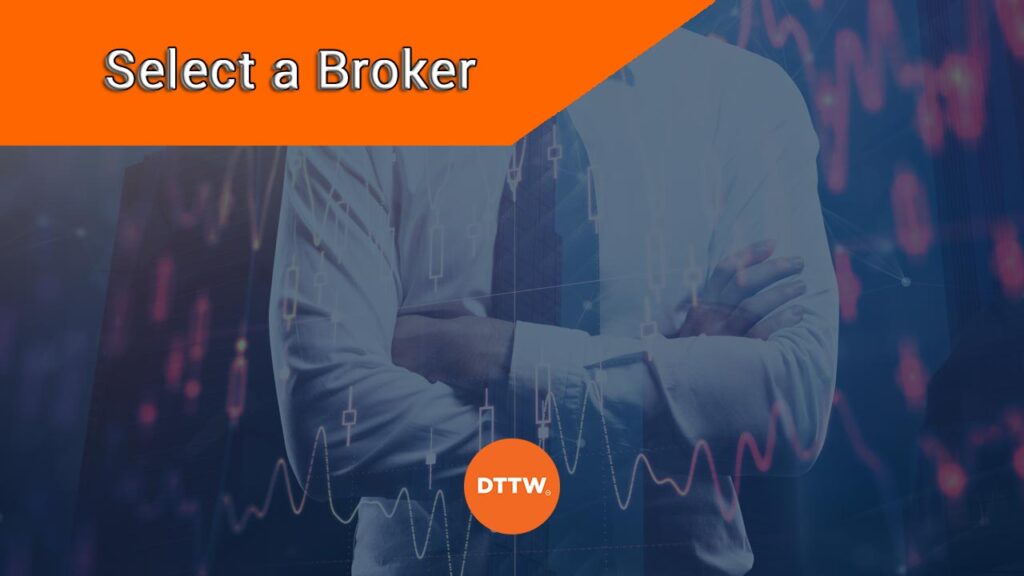One thing is easy to ignore while learning about investments and brokerage accounts: the costs associated with them.
Trading platforms and premium research and investment data subscriptions are examples of extra services a broker charges for, such as brokerage fees. However, with the proper broker, you may avoid paying brokerage costs like maintenance and inactivity fees.
Your investment fees may be built into the expense ratios of your funds or paid as a brokerage fee on top of your investment balance. They may also be added as a trading commission when you buy or sell stocks, or they may be assessed by a financial adviser who helps you figure it all out. However, you must go beyond the service provider’s expenses and fees when selecting a broker for your trading.
For one thing, there are brokers on the market that demand a little fee for their services. If a broker claims to provide advanced services, you should always be wary of them since they may be scammers. Every service you get has a fee associated with it. As a result, if a broker offers you services for a low commission, you should be wary since something may be wrong.
Aside from price, there are many things to consider when selecting a broker.
How To Choose a Broker
Before you can choose a forex broker, you must first determine what kind of investor you are and what your investment objectives are.
Investing in forex via a broker offers both benefits and drawbacks. Regulation, security offered by these businesses, and transaction fees are all critical considerations. Brokers’ use of security measures varies widely.
Using two-step authentication by your broker, according to these forex brokers reviews, will keep your account secure from hackers. The majority of foreign exchange dealers are regulated. However, not all brokers are licensed, and investors should be cautious of companies that are not regulated in any way.
Brokers’ platforms also vary in terms of the minimum account balances needed and the transaction fees associated with them. Decide how much you want to put in, how much you’re prepared to spend in fees, and what your objectives are before you begin investing. The best platform for you will depend on a variety of variables. Before becoming engaged, make certain to consider all factors.
What do you need to consider?
When looking for a forex broker, the first thing to consider is the broker’s track record. NFA membership or CFTC regulation is in no way guaranteed by having a fancy website. The “About Us” portion of a broker’s website will usually include the NFA member number.
The account options vary from one forex broker to the next. When evaluating broker features, keep these four things in mind: leverage and margin; commissions and spread; minimum initial deposit; and the convenience of deposits and withdrawals.
Participants in the forex market may be able to use leverage available in their margin account depending on their broker. For example, a trader with a $1,000 account may maintain a $50,000 stake utilizing 50:1 leverage. Leverage may go as high as 200:1 with certain brokers.
When a trader has a winning position, leverage works to his advantage since the possibility for profit is significantly increased. Leverage, on the other hand, has the ability to rapidly devastate a trader’s account due to the increased size of possible losses. Be cautious while using leverage.
While a broker may have a large number of forex pairs to choose from, the most essential thing is that they have the ones that you are interested in trading.
A broker’s customer service should be accessible around the clock since forex trading takes place around the clock. You may learn a lot about a broker’s customer service and wait times by giving them a short call.
How To Check Whether or Not Your Broker is Legit
For those who believe the dirty tricks of brokers and other financial professionals stopped with the Great Recession, they may be in for a rude awakening.
Do not do business with any broker or financial adviser who approaches you by phone or email without your permission. Investing seminars that provide free lunches or other freebies are designed to lure you in and encourage you to drop your guard. 60% of those over 40 who took part in the FINRA Investor Education Foundation’s 2013 poll claimed they were invited to a “free lunch” lecture.
As the SEC warns, you should be extra cautious when dealing with cold callers that employ high-pressure sales techniques, promote possibilities that come along just once in a lifetime, or refuse to provide written information on an investment.
The individuals who will provide you with advice, goods, and services need to be kind and approachable, regardless of whether you’re searching for a broker or a financial advisor. Ask a lot of questions about the products and services offered by the business, as well as about the company’s past experience working with customers who share your requirements.
Also, learn about your working connection with the expert. In accordance with the so-called fiduciary standard, financial advisors are required to prioritize the interests of their customers above their own when making investment recommendations.
